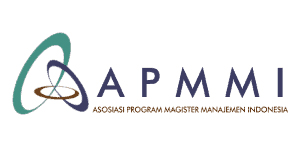Navigating Complexity of Human Resource Information System based on Institutional Theory Perspective
DOI:
https://doi.org/10.30996/jmm17.v11i1.10821Abstract
This research delves into the intricate landscape of Human Research Information Systems (HRIS) through the lens of Institutional Theory. HRIS plays a pivotal role in modern organizations, serving as a central repository for managing human resources data and informing decision-making processes. However, the complexity of HRIS is increasingly pronounced due to factors such as technological advancements, evolving organizational structures, and shifting workforce dynamics. This study aims to elucidate the multifaceted nature of HRIS complexity and its implications for organizational practices. Employing qualitative research methods, including interviews, case studies, and document analysis, this study investigates how institutional pressures shape the design, implementation, and utilization of HRIS within organizations. Through an exploration of diverse organizational contexts, the research identifies the various institutional forces that influence HRIS dynamics and the strategies employed by organizational actors to navigate these pressures. By adopting an Institutional Theory perspective, this research offers insights into the interplay between institutional forces and HRIS complexity, shedding light on the underlying mechanisms driving organizational practices. The findings reveal a nuanced understanding of HRIS complexity, highlighting the intricate interactions between institutional pressures, organizational actors, and HRIS functionalities. Moreover, the research uncovers the ways in which organizational actors negotiate meaning within the context of HRIS, illustrating the dynamic nature of HRIS within organizational settings. These insights contribute to theoretical advancements in understanding HRIS complexity through an Institutional Theory lens and offer practical implications for HRIS management and organizational strategy. Ultimately, this study underscores the importance of considering broader institutional forces when examining HRIS dynamics and emphasizes the need for organizations to align HRIS initiatives with institutional goals. By illuminating the complex interplay between institutions and HRIS, this research provides a foundation for enhancing HRIS effectiveness and promoting organizational resilience in an ever-evolving landscape.
Downloads
Downloads
Published
How to Cite
Issue
Section
License
Authors who publish to JMM17: Jurnal Ilmu Ekonomi Dan Manajemen agree to the following terms:
- Authors transfer the copyright and grant the journal right of first publication with the work simultaneously licensed under a Creative Commons Attribution-ShareAlike 4.0 International License.. that allows others to share the work with an acknowledgement of the work's authorship and initial publication in this journal.
- Authors are able to enter into separate, additional contractual arrangements for the non-exclusive distribution of the journal's published version of the work (e.g., post it to an institutional repository or publish it in a book), with an acknowledgement of its initial publication in this journal.
- Authors are permitted and encouraged to post their work online (e.g., in institutional repositories or on their website) prior to and during the submission process, as it can lead to productive exchanges, as well as earlier and greater citation of published work (See The Effect of Open Access)












